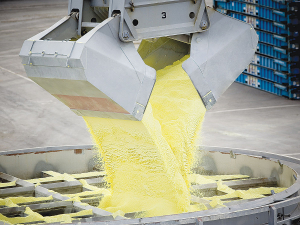Ballance has given farmers a heads-up to expect a price rise after May 20.
In March, the co-operative lowered the price of SustaiN to help farmers avoid feed shortages ahead of winter.
Ballance general manager sales Jason Minkhorst says feed continues to be a challenge across the country.
"So we are holding at this lowered price for SustaiN and urea until 20 May 2022," he told Rural News. "However, after this date our SustaiN and urea prices will begin a step change towards global prices."
Minkhorst says as we head into next season and prepare for spring, Ballance will be reviewing all prices across its product list.
"The situation in Ukraine has put a squeeze on the availability of nutrients across the globe. Fortunately, we have not been impacted by these prices yet, but as our ships hit the water, these costs will impact our fertiliser prices."
He points out that since the situation in Ukraine has started, global urea prices have lifted frrom around US$600/tonne to nearly US$1,000/tonne.
"We will do everything we can to absorb the impact as best we can and ensure that we have a consistent supply in the critical months ahead," he says.
The recent global price increases are on the back of two years of high prices.
Minkhorst told Rural News that several factors were behind the rise in fertiliser prices, including high energy costs driving up the cost of production of fertilisers, and export restrictions imposed by China, a large global exporter.
Minkhorst says China has prioritised its own farmers over those in other countries, which has created shortages.
Finally, the "ugly" factor impacting fertiliser prices is the Ukraine War.
"This made a bad situation worse. And the timing was extremely bad," he says.
"Although we are far from Europe, the impacts of this war are being felt here in New Zealand, particularly as the sanctions have bitten. This is in the form of increased costs of fuel and in our case, fertiliser."
Russia is the largest exporter of fertiliser in the world and also supplies a significant percentage of Europe's energy needs.
In addition, Belarus' exports of potassium are disrupted because of its support for Russia. Collectively Russia and Belarus account for 40% of global potassium supply.
As the war and sanctions progressed, there was a rise in fertiliser prices, particularly nitrogen and potassium.
Minkhorst points out that global nitrogen prices rose to US$1,000/t and this excludes freight and local distribution costs.
Ballance was not adversely impacted in the short to medium term as it does not source finished or raw materials directly from Russia, Belarus or Ukraine.
"However, we are managing the knock-on, so that we can maintain surety of supply for our farmers and growers.
"Our focus is helping farmers through this autumnl, but we are also very aware of the impacts of the cost of fertiliser for the coming spring. We will be watching this closely over winter."



















